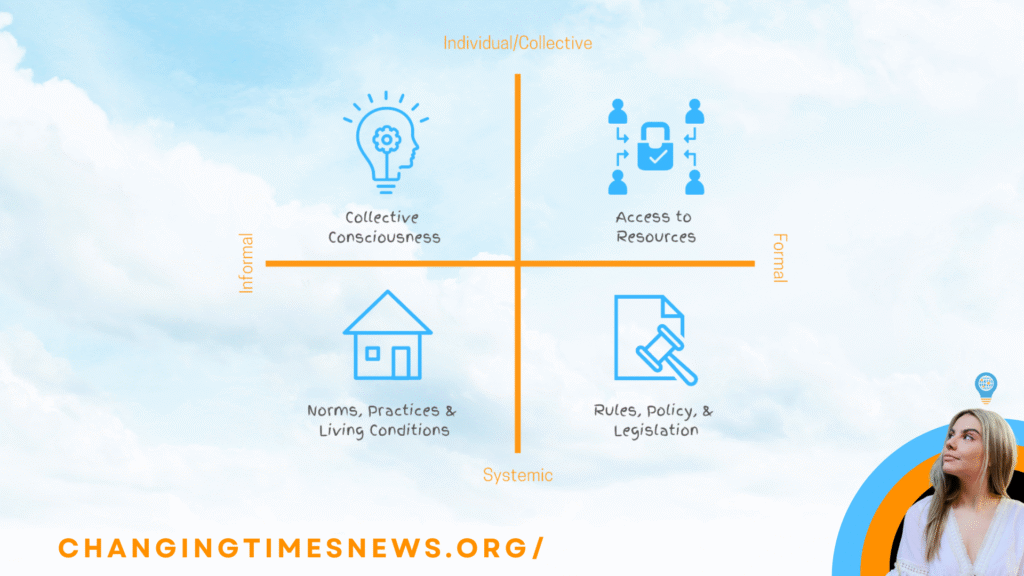As the world races toward the 2030 deadline for achieving the United Nations’ Sustainable Development Goals (SDGs), many experts and activists agree on one uncomfortable truth: progress is lagging. From climate action to reducing inequality, the vision is clear, but the collective capacity to realize it remains uneven.
Enter the Inner Development Goals (IDGs)—a growing international framework that suggests the missing piece of the puzzle may lie not only in what we do, but who we are while doing it.
In the latest episode of the Changemaker Q&A podcast, host Tiyana J unpacks the IDG framework and explains why self-development is not a luxury, but a necessity for sustainable social change.
From the SDGs to the IDGs
The IDGs were launched in 2020 as a response to the slow progress of the UN’s SDGs. While the SDGs map out 17 urgent global priorities—from eradicating poverty to ensuring clean energy—the IDGs focus inward, outlining the personal and collective capacities needed to achieve them (Inner Development Goals official site).
“Self-development and social change should really be considered two sides of the same coin,” Tiyana J explains in the episode, reflecting on her own journey through burnout and renewal. “The energy that we engage in the work of change with is going to be reflected in the change that we create.”
The IDG framework consists of 23 skills and qualities, grouped into five dimensions:
- Being: Developing inner strength and presence (e.g., integrity, self-awareness, openness to learning).
- Thinking: Cultivating cognitive skills for complexity (e.g., critical thinking, sensemaking, long-term visioning).
- Relating: Fostering empathy and compassion for people and the planet.
- Collaborating: Building trust, communication, and co-creation across differences.
- Acting: Exercising courage, creativity, and perseverance in uncertain times.
Together, these areas represent what the initiative calls the “transformative skills for sustainable development.”
Why It Matters Now
Recent reports show that the world is not on track to meet most of the SDGs by 2030 (United Nations 2023 SDG Progress Report). Analysts often point to political will, funding gaps, or global crises like the COVID-19 pandemic. But frameworks like the IDGs argue that inner capacity—such as resilience, perspective-taking, and empathy—are just as critical in tackling complex, systemic challenges.
Want to get started applying the IDGs framework in your life?
Access free resources and training as part of our Empowered Agents of Change toolkit via the FREE Social Impact Foundations course on the School of Social Impact.
“It’s easy to get caught up in the urgency of reacting to problems,” says Tiyana. “But if we ourselves lack the inner compass, presence, and courage to engage differently, we risk reproducing the very patterns that caused the problems in the first place.”


